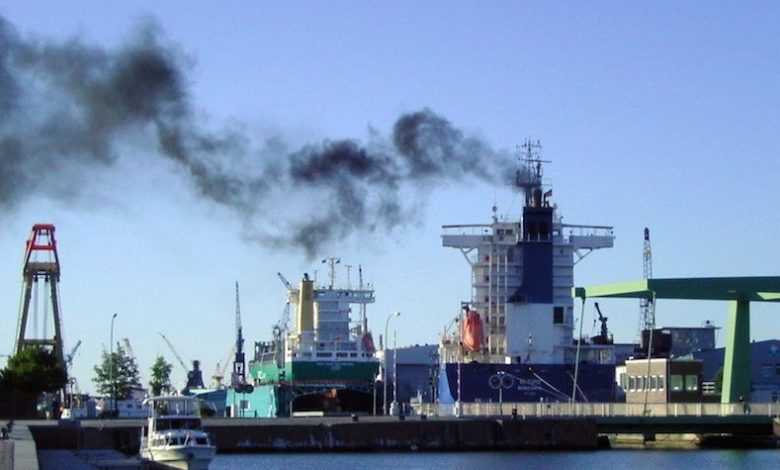ContributionsEnvironmentEuropeRegulatory
Sulphur distraction

Captain Ed Enos, a keen Splash reader, laments a missed opportunity by shipowners this week to properly address the looming sulphur cap at Posidonia.
With feigned interest I’ve been reading the coverage of this year’s Posidonia event. As I wait for an announcement of significance, I recall the impressive number of shipowners and operators who have been in Athens these past few days and who control a substantial amount of the world’s tonnage. But Posidonia 2018 has taken on a Hollywood-like award show status where appearances seem to matter more than the substance of accomplishment. Donning your sunglasses to meet the media is just a coincidence, yes?
Clearly the hot topic among the crowd is the impending consequences of the IMO fuel sulphur cap, which will impact everyone even before January 1, 2020. This solution, though, handed down by international regulators at IMO to address the climate change problem is like a ship without a rudder. We all know where we want to go, but we can’t safely navigate our way there.
Extensive coverage of events provided by Splash has revealed a tried and tired theme by major (and wealthy) Greek shipowners.
That is the shared belief that their shipping fleets are burdened by overzealous regulators, unlike other transportation sectors. A handful of shipowners have the sense they are at the mercy of the world’s energy sector. That the oil majors will dictate to them the supply and type of fuel available in 2020. Did anyone else get the feeling these guys were shedding a few crocodile tears?
In the US we have a saying, “You’re either sitting at the table or you are on the menu.” Posidonia 2018 presented a tremendous opportunity unlike no other for these owners to rally together and jointly create solutions driven by the industry, not government bureaucrats. Imagine the stunning positive outcome from this event had the owners in Athens this week – in control of a significant amount of the world’s bulker and tanker fleet – proposed a workable solution to get where we all want to go.
In fact, have large fleet owners ever met directly with refinery owners; bunker suppliers; and oil majors to discuss the logistical iceberg we all see looming dead ahead? Our entire maritime industry thoroughly understands the problems that come with ships operating globally. There is a constant need of the right fuel at the right place and time. Admittedly, price is an entirely different matter. But let’s focus on supply meeting a known demand first. Shouldn’t the participants at Posidonia 2018 collectively be engaged with fuel suppliers upstream to resolve the detailed specific problems that IMO regulators cared little about? Wouldn’t the industry negotiating en masse directly with fuel suppliers today be a positive move to avoid an economic gut punch to the world tomorrow?
John Micheal Radziwill, CEO of GoodBulk, stated publicly on Monday: “We should just slow down…Slow steaming will also reduce capacity on the market and we can make more money.” Clearly profits are the greatest concern. This hardly exemplifies the genuine desire for a long-term positive solution to the impending IMO sulphur cap. I hoped these gentlemen had the greater good of their entire industry in mind.

And with a suggested 80% of the world ship fleet members of the “International Chamber of Shipping” then one might have expected that they would become the main facilitators of this much needed collective discussion. But they were nowhere to be found, probably drafting a new “complaint” to IMO.
Yes Andy, because it’s generally easier to sit back and complain about an issue. The real hard work is seeking a solution.
“Slowing down” might work on paper for a short while. But is that the best they can do?? Apparently the answer is…yes.
How are the stats going to measured when the IMO received no accurate figures of CO2 pollution when it passed the resolution.
Also how are fines or other penalties going to be enacted? On the world fleet as a whole or individual ships? Are cargo owners going to be taxed for shipping their products on ships that don’t conform to an as yet to be established standard for engine exhaust.
What a farce>
Excellent questions Paul. I can’t imagine any sceanario where the ship owners will allow themselves to be burdened with any more costs. Whether a penalty or otherwise. I can easily see a concerted effort to make the charterer or cargo owner pay up. But the devil is in the details as they say. Might be a new clause to create in future agreements, eh?